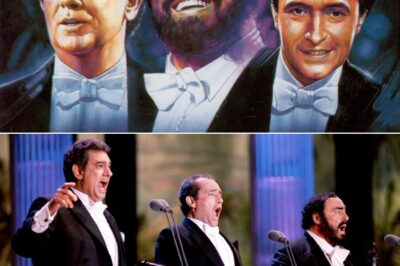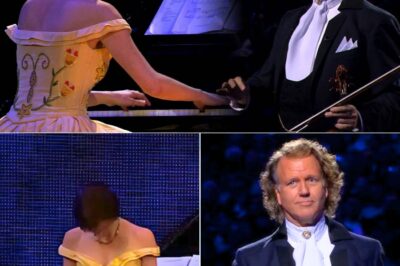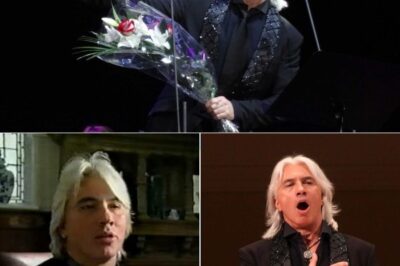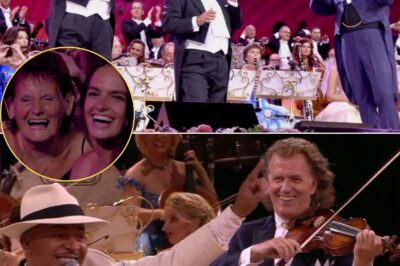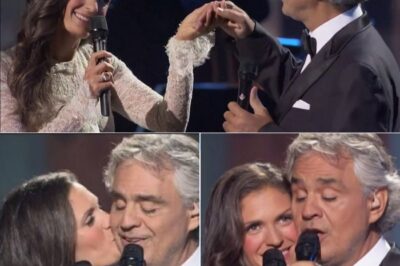Shaq’s Brutal Truth That Forged Kobe’s Legacy: ‘I Told Him He WASN’T Great’ – The Brotherly Tough Love That Created a Legend

In the pantheon of NBA legends, the duo of Shaquille O’Neal and Kobe Bryant will forever hold a place of prominence. Together, they delivered three consecutive championships to the Los Angeles Lakers from 2000 to 2002, redefining dominance and charisma on the court. But behind the success, the highlight reels, and the banners, lay a complex relationship—one marked by competitiveness, friction, deep respect, and ultimately, brotherhood.
In a recent interview, Shaquille O’Neal opened up about the real dynamics of his bond with Kobe Bryant, sharing a perspective that sheds new light on how tough love and unfiltered honesty helped mold Kobe into the iconic figure he became.
“I Told Him He Wasn’t Great”
In a candid reflection, Shaq revealed a moment that captures the raw and honest energy that existed between him and Kobe during their early years together.
“I told him he wasn’t great,” Shaq admitted. “I said, ‘You’re good. But you’re not great yet.’”
It wasn’t a shot to belittle or discourage. According to Shaq, it was a deliberate push. It was the kind of comment a big brother gives to challenge his younger sibling—to ignite a fire and demand more.
And ignite Kobe, it did.
A Brotherhood Built on Challenge
Shaq and Kobe’s relationship is often portrayed as turbulent, particularly during the peak of their careers. There were well-publicized disagreements, moments of tension during press conferences, and even near-physical altercations behind the scenes. But those who were truly close to them, and the players who witnessed their interactions day in and day out, often described their dynamic as more familial than hostile.
“We were like brothers,” Shaq said. “Sometimes we fought, sometimes we didn’t talk, but we always loved each other. I challenged him, and he challenged me.”
The brotherhood wasn’t about hugs and hand-holding—it was about setting the bar higher than anyone else dared. It was about pushing each other to the edge, not out of spite, but out of mutual belief in each other’s potential.
Kobe’s Response: Relentless Work

Kobe Bryant was known for his unmatched work ethic. Long before sunrise, he was in the gym. Even after grueling games, he would head straight back to the hardwood to perfect a move or polish a flaw. That drive, according to Shaq, was part of what made Kobe different—and ultimately, legendary.
“When I told him he wasn’t great, he didn’t pout. He didn’t argue. He went to the gym,” Shaq recounted. “That’s what separated him. He took everything personally—not in a negative way, but in a way that made him better.”
That hunger to prove himself didn’t come from public praise—it came from private motivation. Whether it was to prove Shaq wrong, or to rise above every voice that ever doubted him, Kobe internalized challenges and turned them into fuel.
The Competitor’s Edge
What made their relationship even more fascinating was that both men were alpha competitors. Shaq, the most dominant big man of his era, thrived on physical superiority and charisma. Kobe, the apprentice-turned-master, relied on surgical precision and a Jordan-esque obsession with greatness.
“There were times he annoyed me, and I annoyed him,” Shaq said with a laugh. “But when we got on that court, it was all about winning.”
The Lakers’ three-peat championship run was a testament to their combined greatness, but also a constant tug-of-war between two fiercely ambitious players who both wanted to be the guy. While egos may have clashed, it was that very competitiveness that forged them into a historic tandem.
Shaq recognized that by not coddling Kobe, he gave him something even more valuable: a reason to strive for more.
“If I had told him he was great too early, maybe he relaxes. Maybe he doesn’t push as hard. But Kobe? You challenge him, and he’ll destroy that challenge.”
Growth After Separation
After Shaq was traded to the Miami Heat in 2004, many assumed the relationship between him and Kobe was broken for good. But as the years passed, so did the bitterness. Both men matured. They grew beyond the petty rivalries and learned to appreciate what they meant to each other’s journey.
In later interviews, Kobe often credited Shaq for his role in shaping his early years.
“He taught me how to win,” Kobe once said. “He was the most dominant force I had ever seen. Going against that every day in practice—it prepared me.”
And Shaq, in turn, gave Kobe his flowers after retirement and especially following his tragic passing in 2020.
“I’ve lost a little brother,” Shaq said, with tears in his eyes. “We argued, we fought, but we always respected each other. And I’m proud of the man he became.”
Legacy of Tough Love

The story of Shaq and Kobe isn’t just about basketball—it’s about the power of honest relationships. It’s about how conflict, when rooted in respect, can be a tool for greatness. It’s about how saying “you’re not great yet” can sometimes be the most loving thing you can say—because it challenges someone to rise.
In a world where public personas often mask personal truths, Shaq’s recent reflection reminds fans that greatness isn’t just born—it’s built. And often, it’s built through fire.
Kobe Bryant became a legend not because everyone told him he was perfect, but because he faced resistance, friction, and high expectations—especially from those closest to him.
“I told him he wasn’t great,” Shaq repeated. “And I’m glad I did. Because he became one of the greatest ever.”
That brotherhood, full of conflict, honesty, and unconditional respect, may very well have been one of the most powerful forces behind Kobe Bryant’s legacy. And in Shaq’s eyes, it was never about rivalry—it was always about love.
News
When José Carreras stepped onto the stage to perform Torna a Surriento in honor of Mario Lanza, no one expected what would unfold next—his voice didn’t just fill the room; it seemed to reach back through time, echoing with the passion and brilliance of a forgotten era. The atmosphere shifted, the audience fell silent, and some even questioned if they were witnessing more than just a performance. Was this truly Carreras, or had the very soul of Neapolitan music been awakened through him? What mysterious force stirred that night? Why did this single performance leave even seasoned opera lovers speechless? One thing was certain: something unforgettable happened—and it may never happen again.
When José Carreras performed Torna a Surriento in his tribute to Mario Lanza, it was as if the spirit of…
“There’s a Musical Performance Everyone Keeps Talking About, and It’s Not What You Expect—André Rieu’s Rendition of ‘Ballade Pour Adeline’ Has Left Millions Puzzled, Captivated, and Compelled to Rewatch Without Understanding Why—Some Call It a Perfect Mystery in Sound, Others Say It’s Just a Simple Tune, Yet It Continues to Spread Globally with Unexplainable Force—What Is It About This Instrumental That Pulls People In So Deeply? Why Are Listeners Around the World Experiencing Something They Can’t Explain Whenever This Version Plays? One Thing Is Certain: Whether You’ve Heard It Before or Not, There’s Something Hidden in This Performance That Might Change How You Experience Music Forever.
“There’s a Musical Performance Everyone Keeps Talking About, and It’s Not What You Expect—André Rieu’s Rendition of ‘Ballade Pour Adeline’…
You’ve Heard the Voice… But Do You Know the Man Behind It? From Frozen Beginnings in Siberia to Standing Ovations Across the Globe, Dmitri Hvorostovsky Uncovers the Untold Chapters of His Rise to Fame—A Journey Marked by Unimaginable Highs, Quiet Struggles, and Personal Discoveries Never Shared Until Now in This Rare and Candid Sit-Down with Bing & Dennis That Will Leave You Reexamining Everything You Thought You Knew About the World’s Most Captivating Baritone
You’ve Heard the Voice… But Do You Know the Man Behind It? From Frozen Beginnings in Siberia to Standing Ovations…
The moment classical music hijacked a disco legend—watch as Rieu’s strings unleash a tidal wave of joy, turning solemn concert halls into dancing riots. This isn’t just crossover; it’s a revolution where bow meets bassline, and the audience loses all restraint. Proof that even the grandest stages can’t contain the explosive power of a timeless anthem reborn.
The moment classical music hijacked a disco legend—watch as Rieu’s strings unleash a tidal wave of joy, turning solemn concert…
The Note That Shattered Eternity: Pavarotti’s Forbidden Rise from Obscurity to Opera’s Unrivaled Throne—A Documentary That Uncovers the Raw Truth Behind the Legend. How One Man’s Voice Defied Gravity, Broke Every Rule, and Rewrote Music History. Secrets, Scandals, and the Untold Sacrifices That Built an Icon. This Isn’t Just a Film—It’s a Revelation That Will Leave You Breathless. Witness the Explosive Journey of the Century, Where Talent Collided with Destiny, and the World Still Hasn’t Recovered. For Fans Who Think They Know Everything and Newcomers Who Dare to Discover: Prepare for the Unthinkable.
The Note That Shattered Eternity: Pavarotti’s Forbidden Rise from Obscurity to Opera’s Unrivaled Throne—A Documentary That Uncovers the Raw Truth…
Andrea Bocelli and Veronica Berti’s Breathtaking Duet: A Romantic Symphony of Love, Dance, and Passion That Captivated the World – Their Eyes Locked, Voices Merged, and Hearts Spoke in a Moment So Pure, It Felt Like Time Stood Still. Witness the Magic of Their Unbreakable Bond, the Grace of Their Waltz, and the Fire of Their Final Kiss That Left Millions Spellbound. This Isn’t Just a Performance—It’s a Love Letter Set to Music, a Testament to Devotion That Redefines Fairytale Romance. Every Glance, Every Note, Every Step Tells a Story of Two Souls Perfectly in Sync. Prepare to Be Moved Beyond Words!
Andrea Bocelli and Veronica Berti’s Breathtaking Duet: A Romantic Symphony of Love, Dance, and Passion That Captivated the World –…
End of content
No more pages to load

